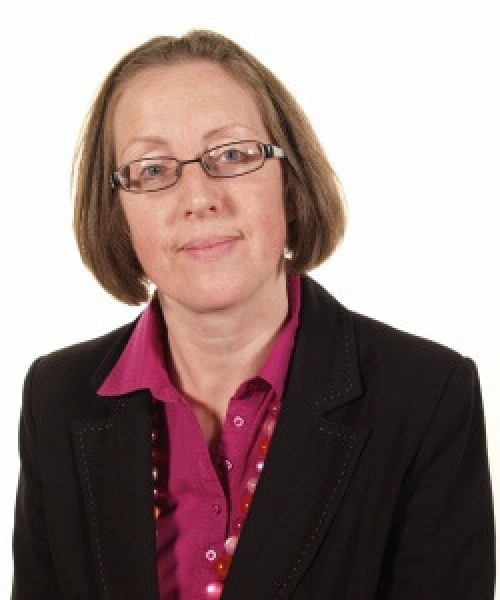“Those who don’t know history are destined to repeat it”
Edmund Burke
History
Bailieborough is a town with a rich and vibrant historical identity. From its association with the Corleck Head – a three sided stone sphere dating from the early Iron Age- the Bailieborough area holds evidence of human habitation span thousands of years. Standing stones, ringforts and megalithic tombs in the area tell the prehistoric story of Bailieborough. Officially granted in 1610 by King James I as an estate of 1000 acres to William Bailie, an Undertaker from Scotland, the town of Bailieborough can be regarded as a perfect example of a plantation town built as a result of the Ulster Planation. Striking period buildings of both a religious and commercial nature are a feature of the town. Bailieborough is also the birthplace of renowned Suffragist, Pacifist and Writer Francis Sheehy-Skeffington who was infamously shot dead during the 1916 Rising on the orders of Captain JC Bowen-Colthurst. Bailieborough Community School is perfectly situated to take full advantage of the historical riches that Bailieborough has to offer.
It is impossible not to feel a sense of history at Bailieborough Community School and the school duly boasts a vibrant and dynamic History Department that aims to impart a passion for a subject that plays such an important role in modern society.
Rationale:
The study of History is concerned with gaining a clear understanding of the complexity of the human experience by analysing the key events of the past that have shaped the modern world. The History student investigates the political, socio-economic and cultural factors that have influenced our world at local, national and international level.
Students of History develop an understanding of their own heritage as well as an appreciation of cultural diversity, multiple-perspectives, social attitudes, values and ideologies and a lifelong love of learning.
Skills:
The History Department at Bailieborough Community School aims to develop the key skills of our students such as managing information and thinking, working with others, managing yourself, communicating, being creative and staying well.
Skills specifically associated with the study of History are also emphasised such as; locating and analysing source material, synthesising key information from sources, evaluating source material, recognising bias and propaganda, presenting cogent, logical and clear analysis of a topic, contextualising information and recognising the multi-perspective dimension to controversial topics in History.
Underpinning our teaching is an awareness of the importance of The Four C’s in History: Course, Cause, Consequence(s) and Context. Each topic is studied through this framework.
Junior Certificate syllabus
At Junior Cycle, History should introduce young people to the job of the historian, and to the sources and techniques which historians use to find out about the past. It should also provide young people with a wide tapestry of past events, issues, people and ways of life through which they can come to perceive patterns such as cause and consequence, change and continuity. It is in the past that they will find the roots of the contemporary world. The Junior Certificate History syllabus which follows is designed to promote and accommodate this kind of learning. It contains a number of elements which are important to the study of History at Junior Cycle, outlined below.
Flexibility
The syllabus facilitates a variety of approaches to the teaching of history, e.g. use of a variety of types of historical sources, historical narrative and analysis, biographical studies, exploration of themes or issues, comparative studies and special studies. The content framework allows individual teachers to choose those areas most suitable to their students, and individual students to pursue special studies.
Variety of aspects
The syllabus explores a variety of aspects of life in the past – political, social, cultural, economic and technological. Chronology The syllabus framework is chronological in presentation, spanning prehistoric times to the present day. It also allows students to develop an understanding of a series of concepts, both procedural and substantive.
Developmental
Bearing in mind the 12-15 age-group for whom it is designed, the syllabus is developmental in nature. It moves from the simple to the more complex and from the concrete to the more abstract. It is presented in three sections which reflect this progression.
Irish history
Recognising the importance of education for citizenship and of developing an understanding of contemporary life in Ireland, a substantial part of the syllabus deals with Irish history. This study of Irish history is presented as an integral part of the wider themes of the syllabus
Content of the course
The course covers a broad range of historical events and time periods. The full range of topics are listed below:
- The work of the Historian and the Archaeologist
- Ancient Ireland
- Ancient Rome
- The Middle Ages
- The Renaissance
- The Age of Exploration
- The Reformation
- The Plantations
- The Age of Political Revolutions
- The Agricultural and Industrial Revolution
- Political Developments in 20th Century Ireland
- Political Developments in 20th Century Europe
- Social Developments in Ireland in the 20th Century
In Junior Cert History a variety of different methods are used to examine and investigate these topics. Pictures, documents, stories, artefacts and field trips are utilised to try to make the study of History more accessible to students of all abilities in our school.
The Exam
The Junior Cert Exam takes place over 2hrs30mins. The paper is split into six sections. Section one involves answering questions on pictures. Section two involves a document study. Section three consists of twenty short questions. Section four requires the students to write two short People in History essays in which they must write from the perspective of a person in the past. Section five examines a different topic each year in increased detail. Section six examines the topics studied in the third year of the course in detail- 20th century Irish and European history.
We hope you enjoy studying History at Bailieborough Community School!

